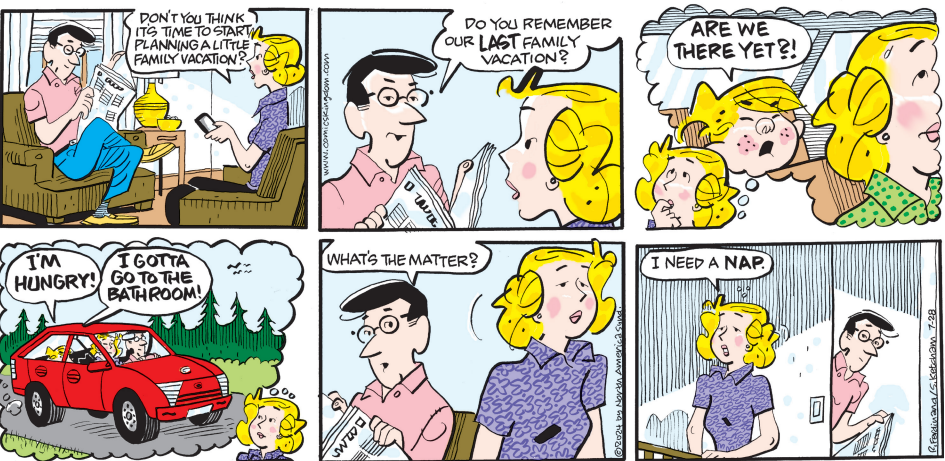July 28, 2024 Sunday Comic
Sunday Comics:
Sunday comic strips are a beloved part of American popular culture, providing everyone with some laughter and maybe bit of tears. Bookended by Sunday newsprint, these illustrated narratives represent a kind of entertainment that has changed quite a bit in the past 150 years. To appreciate the significance of Sunday comics, it helps to explore where they came from and what a hold on popular culture they had — along with the fact that after all these years (and despite life lived largely online), we still see examples popping up today.
Golden Age of Sunday Comics
Sunday comics began to be syndicated on a wide scale and became an important part of American households during the golden age. Mickey Mouse film, television and comic books; Superman comics; Charlie Brown of Peanuts. Superhero comics, funny family-centered strips and adventure-filled sci-fi tales were the trends of this era.
Garfield: A Lasagna and Mischievous Adventure
Certainly, Jim Davis’s “Garfield” Sundays remain one of the cornerstone features on America’s funny pages, since its debut in 1978. On Sunday, July 28, 2024 the strip is a classic one in which Garfield does everything he can for his well-known desire to lasagna and even pokes Olde. This strip in particular gets into a funny bit where Garfield hatches an elaborate scheme to get a second helping of lasagna for himself, one that demonstrates Davis’s hallmark humor and clever pacing.
A frame of Charles M. Schulz’s “Peanuts” is some of the most beloved comic strips ever created. There have been a number of examples that I could write about, but the edition of Peanuts from July 28th (which featured Charlie Brown simply talking to his friends about their summer life and aspirations) was as heartwarming as ever. Schulz skillfully balanced comedy with some deeper emotional layers that gives it staying power across generations.
Calvin and Hobbes: The Quest for Imagination
Han Q. Duong Heh, Bill Watterson’s Calvin & Hobbes showing his unlimited imagination with a child and striped tiger Below is the part of a comic strip that shows Calvin turning basic household chores into an epic space mission in his imagination, which was published on July 28th, 2024. The instances of hand-wringing detail and biting wit are indicative features that one finds in the drawings, but even more so in Watterson’s scripting, his deft ID conning us all to confront our collective superego.
Cultural and Social Impact
They are what we colloquially refer to as the “Sunday Comics“, where many artists take a break from conventional storylines and explore societal norms and offers commentary on politics, relationships or daily life. Cartoon strips such as “Doonesbury” by Garry Trudeau and the later “The Boondocks,” created by Aaron McGruder, have been known to walk the line of poignant social commentary this side of snark to study laughs from their readers and here with both feet planted firmly in cheek that remain among some a topic for years.
Even More Evergreen and Adaptable
Though the influence of digital media continues to grow, traditional Sunday comics remain a relevant part of contemporary life as long-established characters and artists adapt to changes in content or style. They showcase the staying power of classic strips and new voices in comics while showing how this beloved art form can keep up with all that is thrown at it.
The Sunday comics are forever sewn into the tapestry of Americana. These illustrated stories from their early life in the pages of newspapers to be a lively presence even today, still entertain us and are sure to inspire as well as intrigue. As we read further into the future, Sunday comics will forever be around charming us as their stories stimulate the imagination of yet readers to come.

